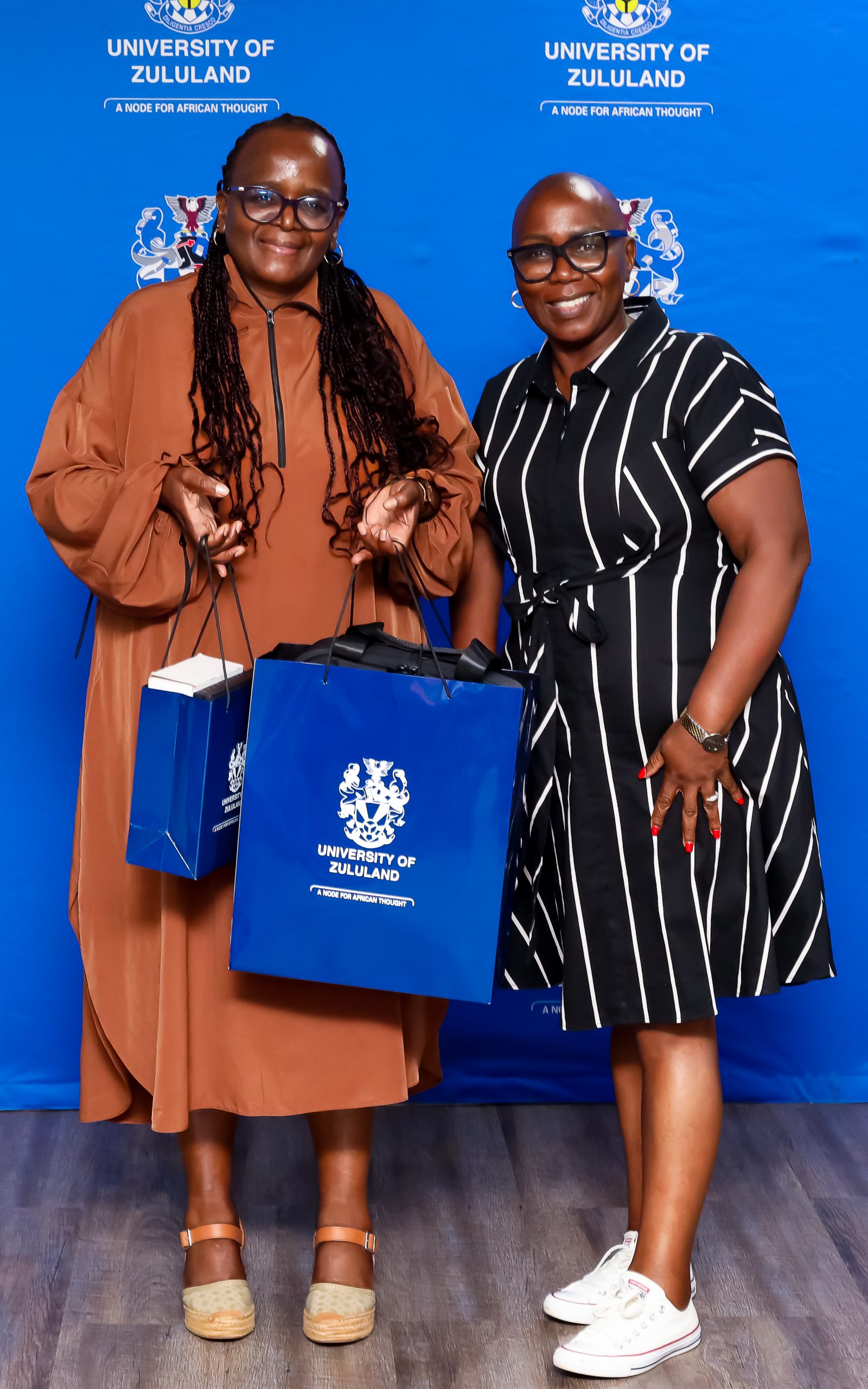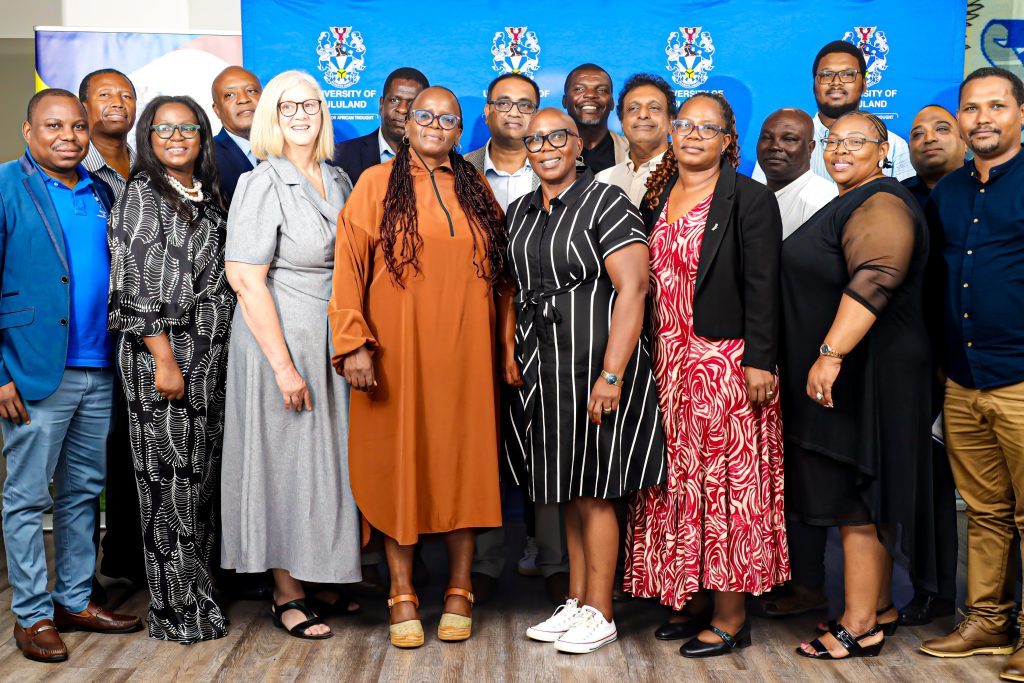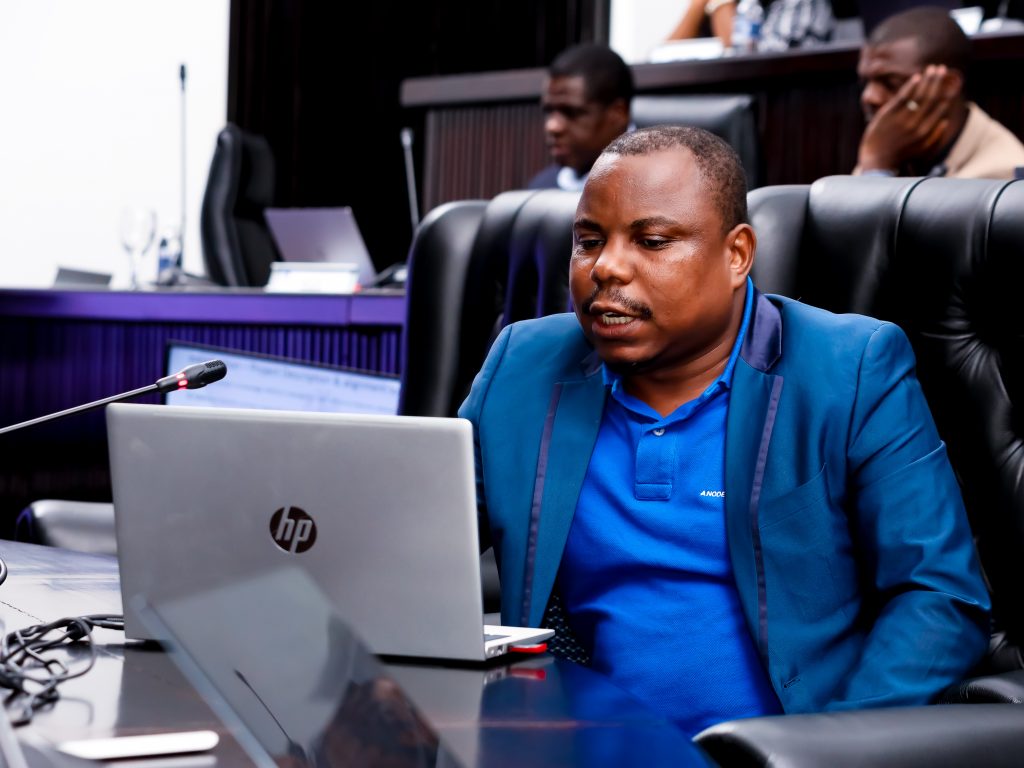Promising Funding for UNIZULU Research Centres Following Meeting with DSTI Deputy Minister

The University of Zululand (UNIZULU) through the office of the Deputy Vice-Chancellor (DVC): Research and Innovation Professor Nokuthula Kunene participated in a fruitful engagement with the Deputy Minister (DM) of Science, Technology and Innovation (DSTI) Nomalungelo Gina and her team on Thursday, 23 January 2025.
Held at the Council Chambers in the KwaDlangezwa Campus, the discussions focused on issues of science, technology, innovation and entrepreneurship with the aim of opening channels for possible DSTI funding opportunities. The meeting saw various UNIZULU academics presenting strategic research and innovation projects that are currently being undertaken by the institution.
The talks were led by Prof Kunene, who laid the foundation by giving an overview of the institution and its strategic vision as outlined in the UNIZULU Institutional Strategic Vision 2027. She mentioned that the University “commits to escalate industry-related research and innovation”. To this end, the institution seeks to transfer its inventions and creative works to consumers through entrepreneurship, commercialisation and social transformation.

Responding to the DVC, the DM emphasised the importance of engagements and collaborations between DSTI and the UNIZULU researchers. She also stressed the need to make science and STEM subjects “more attractive” to learners. Furthermore, she showed eagerness to hear the proposals on the five identified strategic research projects.
Among the presenters was Prof Neerish Revaprasadu, a world-renowned nanotechnologist who is a senior professor in the Department of Chemistry at UNIZULU. He spoke on establishing a national hub for green hydrogen research. The purpose of the Centre will be to harness the richness of the SA’s biodiversity for cutting-edge scientific research and innovative product development leveraging nanotechnology and green nanotechnology principles, to drive sustainable advancements with implications for product development in the field such as food science, biotechnology, bioenergy, nanomedicine sustainable agriculture, and environmental restoration.
Prof Melusi Sibanda, Head of the Department of Agriculture, touched on the establishment of a multipurpose food technology innovation station that will position UNIZULU as a hub for research, commercial product development and training, and education, which sparked interesting dialogue between the DM and one of the UNIZULU academics Prof Nde Fon about food wastage.

Prof Thulani Jili, an Associate Professor in the Department of Physics, gave a remarkable presentation on the UNIZULU optical telescope and astronomical observatory project. He noted that the University of Zululand in its history has never trained students in astronomy and astrophysics, and this could be a groundbreaking undertaking for UNIZULU as far as this crucial science discipline is concerned. “This is the first telescope to be installed in the province of KwaZulu-Natal. Inter-departmental collaborations would thrive because astronomy brings many scarce skills under one roof”.
The DM was equally impressed with the proposals by Prof Jili and Prof Kaseeram, a senior lecturer in the Department of Economics, who presented on the topic of entrepreneurship, particularly the Business Startup Centre. He indicated that it is important that University and Researchers maintain good relationships with traditional leaders within King Cetshwayo District (KCD) and the Zululand District Municipality (ZDM), so that continued engagements are realised. He also added that the Centre is a necessary connector for student entrepreneurs to leverage the business sector and resources outside the University.
The DM was amazed by the calibre of the proposals and committed to further discussions around the possibility of channeling DSTI funds to the projects as well as looking at other avenues to explore for funding.
– Sbahle Dumakude
Pictures: Xolani Ncube and James Thwala

